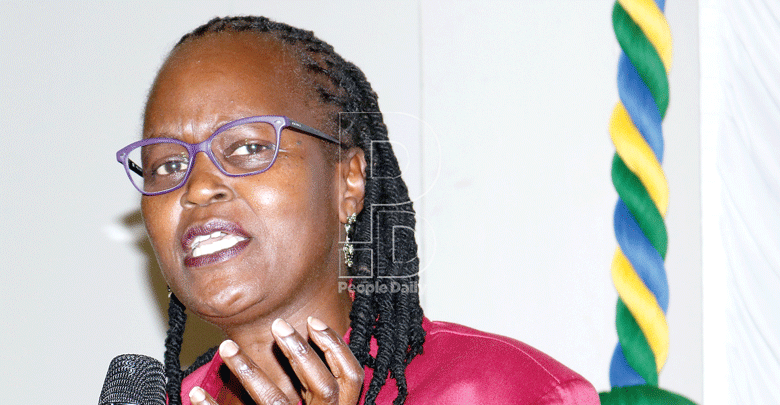State to end primary school boarding

The government is working on ways to phase out boarding schools for learners in primary and the proposed junior secondary schools.
If implemented, the radical plan will see boarding schools restricted to the proposed senior secondary under the Competence Based Curriculum (CBC), comprising the present day form two, three and four classes.
Education Chief Administrative Secretary (CAS) Dr Sara Ruto said the radical plan, which will be implemented in phases, will see all learners between grades 1 – 9 which comprise the current Standard One to Form One attending day schools and only joining boarding schools at Grade 10, the present day Form Two.
Taskforce report
“This way, we will then ensure that parents continue to play a supportive role in terms of bringing up their children.
Going forward, it is probable that we are going to be talking about Grade 1 – 9 being day school and for me it is desirable,” said Dr Ruto.
The CAS was speaking during the launch of a report on “The Impact of Covid-19 on Adolescents in Kenya”, presided over by Public Service Public Secretary Prof Margaret Kobia, in Nairobi yesterday.
According to Dr Ruto, the proposed shift from boarding to day schools for learners in primary and junior secondary forms a key component of the taskforce report on CBC launched in February.
The proposal, among other things, is to ensure that all learners access affordable education.
She lamented that boarding schools had made access to education expensive and out of reach for many learners, especially at secondary level, majority of which are boarding schools.
While tuition in day schools is free, the government gives Sh22,500 per child in boarding schools as capitation but even with this substantial investment, schooling is still found to be expensive, the CAS argued.
The expenses are as a result of additional fees charged for accommodation and meals in boarding schools hence the urgent need for the country to come up with ways to remove barriers to enrollment especially in secondary schools.
Boarding schools
“… if it is boarding schools making learning expensive, then over the years what the ministry has been doing is to invest more in day schools to have the same quality so that any child who goes to any school will get the education they require,” said the CAS.
Dr Ruto said the free day policy started several years ago had seen more resources channeled towards opening up more schools.
“…in fact if you go to many public primary schools, they have a secondary school attached to them – not all but many – so execution of this policy has been incremental and if we are looking into the future, we are now in a curriculum reform period,” she explained.
She said planning is still ongoing to identify schools that will have a junior secondary section or those that will cater for primary alone.
The ministry will also identify schools that will run from Grade One to Grade 12, which means they will have the entire system.
“Our new CBC cohort will be going to Grade 5 in July then to Grade 6, which is like upper primary then after that they go to junior secondary.
If we want a seamless transition, we have to ensure that each child is able to move and again they are still young,” she noted.
The CAS stated that even though secondary schooling is going to be domiciled in secondary schools, the ministry is already looking at ways of improving existing primary school facilities to ensure they have laboratories and other necessities that allow for 100 per cent transition.
“When thinking about education of the future, let us have different alternatives that will be guided by realities of regions we have.
For instance, it makes sense as the taskforce recommended, that you have certain schools that go from Pre-Primary 1 and 2 to Grade 3 as one centre because these are younger children so that they do not have to walk longer distances.
“After that those in satellite schools can join the next primary school, which might go up to Grade 9… these are various alternatives, which have been suggested in the taskforce report and then we need policy to enact them,” said the CAS.
Education system
Kobia echoed Dr Ruto’s sentiments, noting that there was need to reform the education system to address the current problems.
“Even if we decided to make all schools day and we kept the examination system that measures with one ruler, we need to think through that because we know a child who spends more time in school including boarding have a higher chance of doing better than the one in day schools,” she said.
“The best thing would be schools where adolescent children can walk and go home and get parental care,” said the CS.










